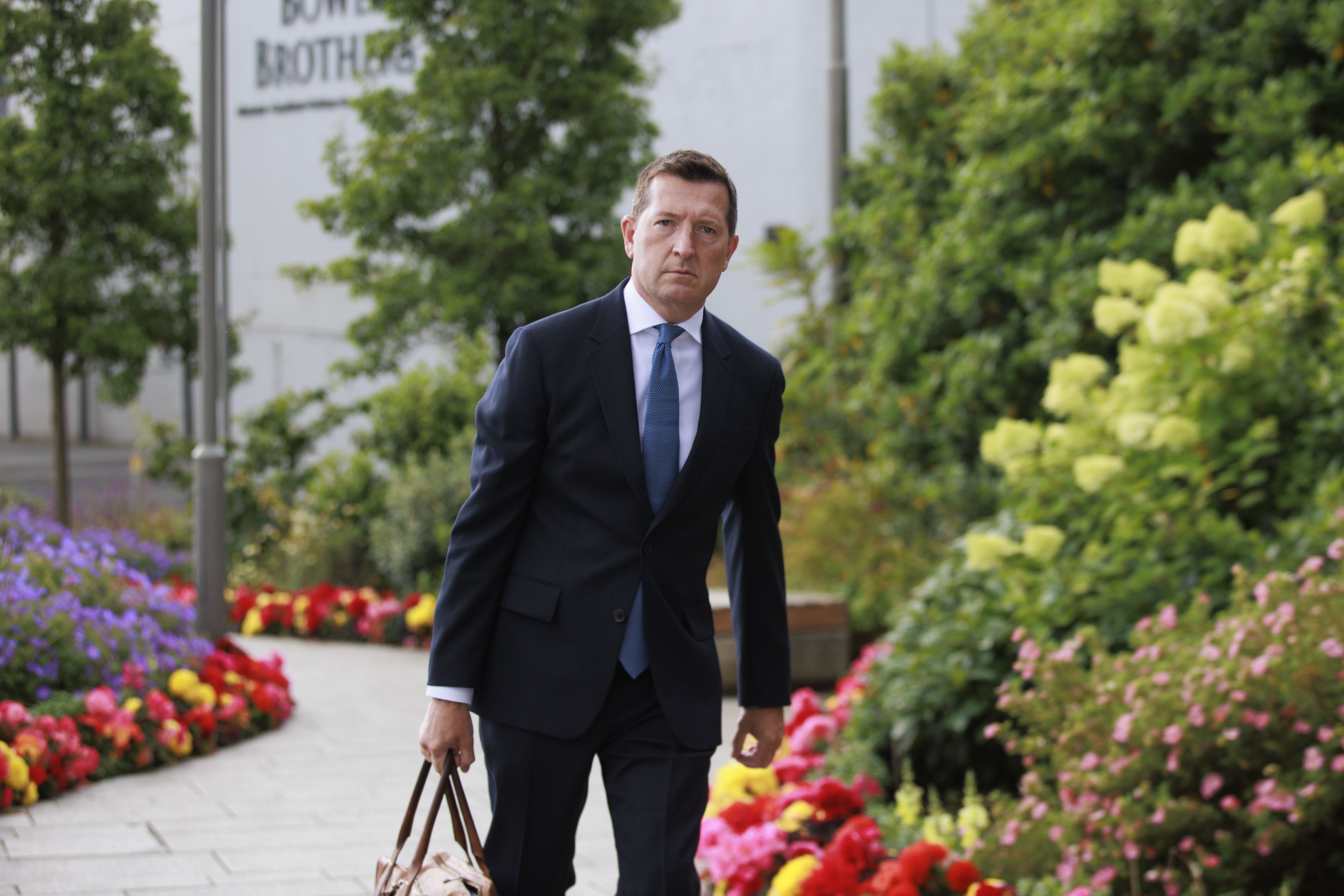Omagh inquiry told pace of disclosure ‘must increase’
The Real IRA bomb in the Co Tyrone town in August 1998 killed 29 people.

The speed of disclosure to the Omagh Bombing Inquiry “must increase”, counsel to the proceedings has said.
The Omagh Bombing Inquiry, chaired by Lord Turnbull, is hearing opening statements from core participants including representatives of bereaved families, victims, the PSNI, and the Secretary of State for Northern Ireland.
The Real IRA bomb in the Co Tyrone town in August 1998 killed 29 people, including a woman who was pregnant with twins, in the worst single atrocity in the Troubles in Northern Ireland.
The public inquiry was set up by the previous government to examine whether the explosion could have been prevented by the UK authorities.
The opening statement section of the inquiry will take place over Monday and Tuesday.
Earlier this year the inquiry heard personal statements from those affected by the massacre.
Prior to the opening statements on Monday, Paul Greaney KC, counsel to the inquiry, told Lord Turnbull that the legal team had hoped that disclosure from relevant bodies would have been more advanced than it currently is.
He further argued that there would be value in having at least one hearing to discuss progress of disclosure in September or October.
“The understandable consequence of the level of disclosure to core participants is that the opening statements of the bereaved families and survivors cannot be as detailed or evidence focused as they would have wished,” he said.
Noting that the next stage of the inquiry will commence in March, he said: “That gap of nine months between Chapter Two and Chapter Three is unfortunate, in our view.”
He added: “The simple fact is that the speed of disclosure to the inquiry by material providers must increase, and that is why we repeat the need for the state core participants and indeed all material providers to work at pace to fulfil the requirements of the inquiry and to ensure that the necessary resources, both human and financial, are dedicated to that work.”
Mr Greaney noted that many documents exist only in hard copy and – even when held digitally – may take time to review and be disclosed.
He offered three further general observations on proceedings.
Mr Greaney stressed that the inquiry was not constrained by any other previous proceeding, investigation or review in its eventual findings.
That comment came in advance of the written submission on behalf of Northern Ireland Secretary Hilary Benn which contained a reference to the judicial review which led to the formation of the inquiry.
At that time, a judge accepted that four of 10 grounds under consideration gave rise to a plausible argument that the bombing was preventable.
Addressing concerns raised by survivors and victims that relevant documentation will be declared “missing”, Mr Greaney said any such claim “will be subject to the most intense scrutiny by the inquiry”, including demands around information on the search efforts and expectations of material being recovered.
He added that the inquiry would use its powers to ensure the fullest possible levels of disclosure.
On the subject of candour, Mr Greaney said the inquiry expects openness and transparency from state core participants
He said state core participants have not made any such concessions in their written opening statements and reminded them that they would be subject to scrutiny.
Fiona Fee KC, for the Northern Ireland Secretary, told the inquiry that “a significant volume of work” has been undertaken in relation to inquiry disclosure.
“To explain the scope of the efforts, it’s crucial to understand the extent of the materials involved,” she said.
“There is a vast volume of material which must be collated, carefully reviewed and provided to the inquiry.
“This process is not simply a matter of gathering readily available paperwork, it’s an immense logistical undertaking requiring meticulous attention to detail, thorough analysis and a strategic, organised approach.”
Ms Fee said the Northern Ireland Secretary had offered sincere condolences to all those who had suffered as a result of the “horrific terrorist atrocity” at Omagh.
A number of organisations fall under the remit of the NI Secretary as a core participant, including the UK Intelligence Community (UKIC), the Ministry of Defence (MoD), the Northern Ireland Office (NIO), the Cabinet Office (CO) and the Foreign, Commonwealth and Development Office (FCDO).
Ms Fee said the scale of the work involved in seeking information on the 31 historic incidents identified by the inquiry is “extraordinary”.
She noted that there will be variations on what is disclosed across the Secretary of State grouping, adding that there will “inevitably” be material that cannot be disclosed in open but will still be provided to the inquiry chairman.
In particular, she said there will only be a “very limited amount” that UKIC can say in open.
However, Ms Fee said the intelligence sector was “engaging meaningfully” with the inquiry and undergoing “an extremely difficult disclosure” exercise.
She added that the Secretary of State grouping is not in a position to make an assessment on whether any concession is appropriate as the overall disclosure process and evidential picture is at “an early stage”.
“The available information would result in an incomplete picture, and the risk of error is significant,” she said.
Bookmark popover
Removed from bookmarks